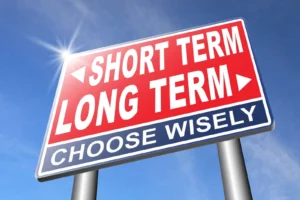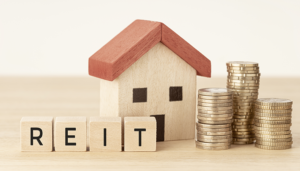Real estate remains one of the most popular ways to invest because there are so many ways to make money. Real estate suits every financial style and goal, whether you want passive income, capital growth, or protection against inflation. This guide discusses some good real estate investment methods to help you choose the one that best suits your financial goals, risk tolerance, and investment horizon.
Buy and Hold Investing
A very old way of investing in real estate is ‘buy and hold’. When you use this method, you buy a home and hold it for the long term, usually for rental income and long-term capital growth. People choose this method because it provides them with a stable, passive income, with the potential for prices to rise significantly over the years or decades. Buy-and-hold investing is generally best done in areas that are experiencing a renaissance or where markets are safe or growing.
Fix and Flip
Many television programs have made the ‘fix and flip’ strategy famous. It involves buying houses cheaply, renovating them, and then selling them for a profit. To use this method, you must be able to identify properties that are worth less than they are and understand how much it will cost to repair the house and what it will be worth after the repairs. Repairing and flipping can be profitable, but it requires a lot of time, home improvement knowledge, and the ability to deal with or repair it. To sell successfully, you need to renovate quickly and efficiently so you can get the best return on your investment.
Volume Purchasing
Wholesale is a way to invest in real estate for those who do not want to renovate or manage the property for the long term. Wholesalers make deals with sellers to buy real estate and then sell the deal to others for more money. Through contract sales, wholesalers can obtain financing without owning real estate. This strategy requires good skills, a network of buyers and sellers, and the ability to quickly seize opportunities.
Real Estate Investment Trusts (REITs)
A Real Estate Investment Trust (REIT) is a way to invest in real estate without purchasing or disposing of the property directly. This is a good thing for those who like to invest conservatively. Some companies own or finance real estate, called REITs, that make money in a variety of areas. When people buy shares in a REIT, they receive a portion of the money from the investment property but do not have to purchase, operate, or finance the properties themselves. This form of investing in real estate offers you flexibility and a wide range of options. People who want a regular income from dividends often choose this method.
Vacation Rentals
With the rise of sites like Airbnb and HomeAway, investing in vacation rentals has become easier and more common. As part of the program, you purchase a property in a popular tourist attraction and rent it out to travelers on a short-term basis. Vacation rentals are more profitable than regular rentals, but require active management and marketing to keep usage high and get the best rates. Investors must also navigate various state laws and regulations regarding short-term rentals.
Invest Money in Commercial Real Estate
When you operate commercial real estate (CRE), you can buy stores, offices, warehouses, and factories. Typically, this type of business requires more upfront capital than purchasing a home, but returns can be higher because lease terms are longer and rents are higher. Commercial real estate investors need to understand the economic factors that impact the commercial market. These include business cycles, tenant demand, and the location of the property.
Leveraging
Leverage means using borrowed money to make a project more likely to make money. In real estate, this means taking out a mortgage to buy a house. This allows homeowners to own and manage more homes using only their own money. Leverage can significantly increase the potential return, but it also increases risk, because the property must generate enough money to cover financing costs.
Multi-family Homes
Another common way to make money is by investing in multi-family properties such as duplexes, triplexes, and apartment buildings. Because they produce more than one type of income, these buildings have more stable cash flows than single-family homes. Economies of scale can also help multifamily property owners save on maintenance and management costs.
Conclusion
There are many ways to invest in real estate, each with its pros and cons. To choose the best real estate investment strategy, you need to understand your financial goals and current market conditions. This is true whether you want to make money quickly by flipping or selling properties or make money in the long term by investing in buy-and-hold properties or real estate investment trusts (REITs). If properly planned and researched, real estate can be a great addition to an investment portfolio. It can bring in capital and help diversify your portfolio.
FAQs
1. What are the different ways to invest in real estate?
You can buy and hold, fix and flip, wholesale, invest in real estate investment trusts (REITs), vacation rentals, invest in commercial real estate, borrow money to buy real estate and invest in multifamily properties.
2. What is the best way for a beginner to start investing in real estate?
For newcomers, buy and hold is generally recommended as it is easy to understand and can lead to passive income through rentals. REITs are also a great place to start for people who don’t know much about property management because they allow people to invest without dealing directly with real estate.
3. What is the fastest way to make money in real estate?
If done right, fixing and flipping can make you money quickly. This program allows you to buy a house at a low price, fix it up quickly, and sell it for a higher price. But you need to know a lot about how to repair a house and how the market works.
4. Is buying a REIT a good idea?
REITs can be a good investment, especially for those who want to diversify their portfolio and make money without having to put in a lot of work. REITs typically pay high dividends, making them a good choice for buyers looking to make money. However, like all investments, they are subject to risks, such as market instability and the potential for losses during an economic downturn.
5. How much money do I need to start real estate trading?
Depending on the strategy chosen, the amount of capital required can vary significantly. You can start wholesale and real estate investment trusts without a lot of money. Buying real estate, on the other hand, typically requires more money for a down payment, closing costs, and possible repairs.
6. What are the risks of buying a home with a loan?
When you borrow money, your potential profits and losses increase. The biggest risk is that rental income may not be sufficient to cover the mortgage and other costs, which could place a financial strain on the property or result in the loss of the property through default.




